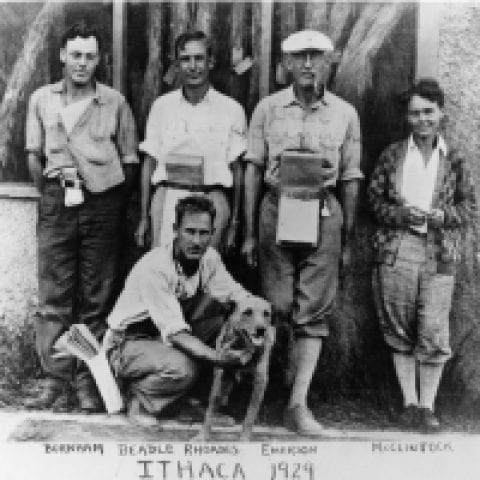About Barbara McClintock
The Life Sciences Lecture Series is renamed the Barbara McClintock Life Sciences Lecture Series in honor of Barbara McClintock (1902–1992), one of Cornell University’s most distinguished alumna. McClintock received a Nobel Prize in Physiology or Medicine in 1983 based on her research in mobile gene elements in corn (Zea mays). The series’ new name honors McClintock’s distinguished career as a plant biologist, her many scientific achievements, and her long-standing affiliation with Cornell.

The study of corn genetics captured McClintock’s attention when she was an undergraduate at Cornell. McClintock received her bachelor of science in 1923, her master’s in 1925, and her PhD in 1927, all from Cornell. She continued her affiliation with Cornell as a researcher and instructor (1927–1931). In 1931, she received a National Research Council Fellowship. She pursued further research at the California Institute of Technology and the University of Missouri, Columbia. McClintock returned for two years at Cornell’s Department of Plant Breeding (1934–1936) before accepting an Assistant Professorship at the University of Missouri (1936–1942).
McClintock spent the bulk of her career as a researcher in genetics at the Carnegie Institution of Washington, Cold Spring Harbor, Long Island, New York. She received many honors, including a Guggenheim Memorial Foundation fellowship (1933–1934) and election to the National Academy of Sciences (1944). As one of Cornell’s first Andrew D. White Professors-at-Large (1965–1974) she visited Cornell regularly to work with and inspire graduate students in the College of Agriculture and Life Sciences.
–Ed Cobb, School of Integrative Plant Science
